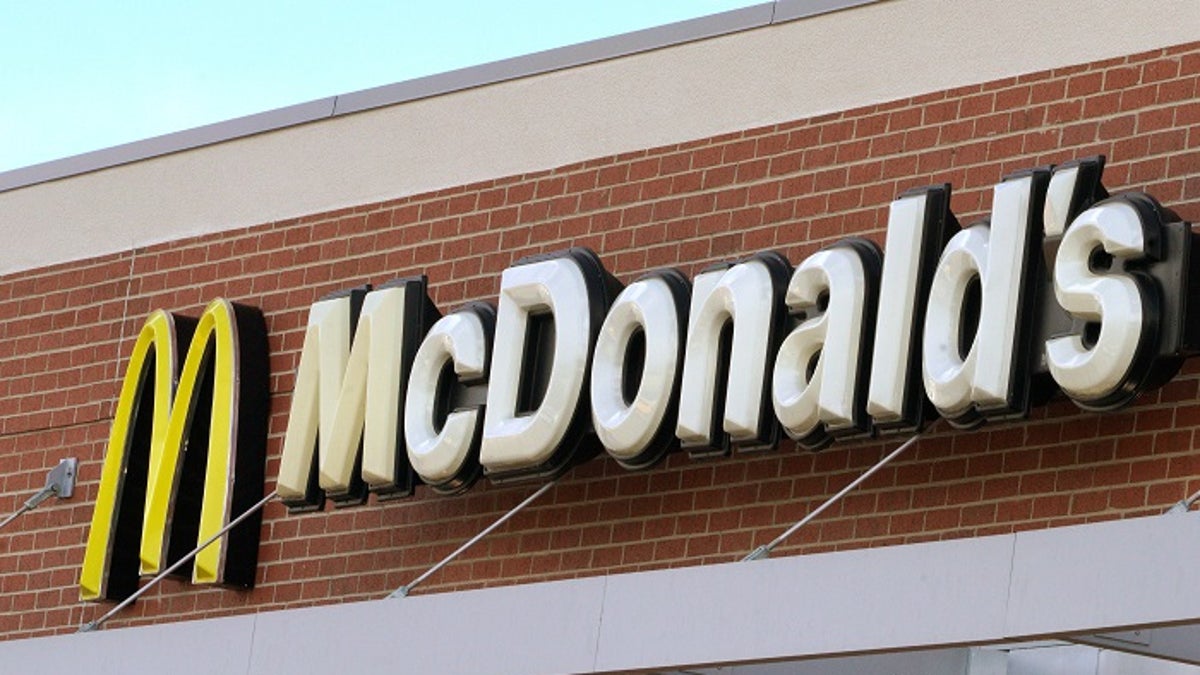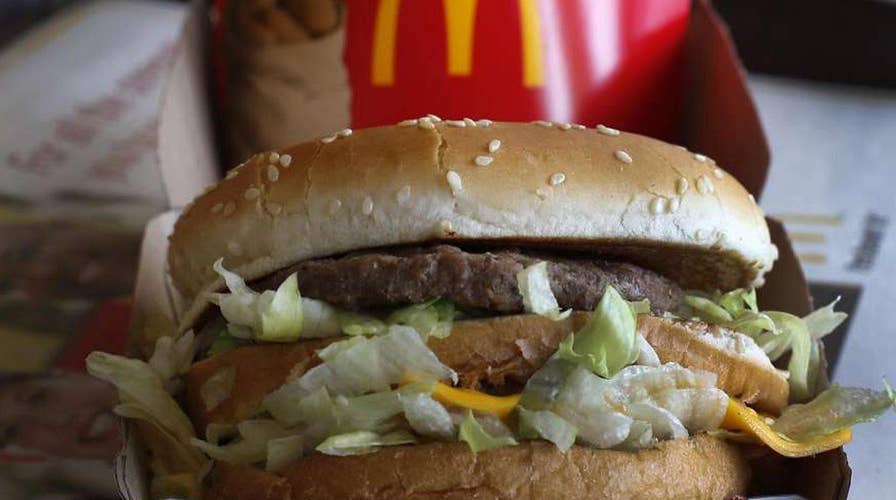Will McDonald's new Big Macs revive the brand?
Fox Foodie: Steve Mangleshot and Marlene Koch discuss two new burger sizes, a controversial cake for President Donald Trump and a boozy exercise trend
McDonald's recently made big news. The fast food chain announced that it’s switching from frozen hamburgers back to fresh ones (at least in its Quarter Pounders).
If you read the headlines, you know this change has been warmly welcomed — by shareholders, by the press, by activists. Let me add another voice to the chorus: mine.
Why does my opinion matter? Because I’m the son of the guy who, 50 years ago, invented both the frozen patty and the process of commercially freezing meat that Mickey D’s still uses today. What Clarence Birdseye did for frozen vegetables, my dad, Herb Lotman, did for frozen hamburgers.
There are many reasons McDonald's has been using frozen food since 1967 — and why, in that time, its stock has made millionaires out of many investors. Frozen food is less prone to contamination, thus reducing the risk of foodborne illnesses. It delivers the consistent taste that we now take for granted, whether we’re gobbling a Big Mac in Beijing or Brooklyn. Most important, frozen food is easy to transport and has a longer shelf life than its fresh counterpart.

The sign outside a McDonalds restaurant is seen in Westminster, Colorado, U.S. January 23, 2017. REUTERS/Rick Wilking - RTSX0DF (REUTERS)
And yet, McDonald's is smart to offer today’s customers fresh burgers. Here’s why.
First, the company knows where its biscuits are buttered. Its patrons are people who want hot, delicious sustenance served right now. Kale connoisseurs and gluten-free menu-requesters, these folks are not. Indeed, the latter types are a small, vocal minority who rarely let fast food pass their lips — even if McDonald's caved to their every wish, they’d still find reasons to object.
Accordingly, the choice McDonald's faces is easy: court those who ask for dressing on the side of their salad, or double down on those who want extra mayo. McDonald's is siding with the burger and bacon crowd. The logic: sell more hamburgers to people who eat hamburgers.
This is shrewd: as any politician can tell you, playing to your base is often more effective than trying to persuade people to change their minds (especially those who are unconvertable).
Second, most people think that fresh meat tastes better. They imagine a patty that’s never been frozen is juicer and more flavorful. It won’t surprise you to learn that I disagree, but, from a PR perspective, McDonald's is smart to emphasize its “fresh” bona fides.
After all, ask the man on the street if he prefers fresh or frozen, and he won’t hesitate. “I fancy fresh food,” he’ll assert. Leave aside the science and the studies and the taste tests - “fresh” just sounds healthier.
Indeed, this perception is one reason why so-called better-burger chains like Five Guys, Shake Shack, and In-N-Out have thrived: because they’re very publicly associated with freshness. Even Wendy’s has joined the bandwagon.
And make no mistake: competition today is fierce. Growing up, the hamburger landscape was dominated by Gino’s. Now, my daughters can feast anywhere from Whataburger to Wahlburgers, from Smashburger to Fatburger — not to mention “fast-casual” chains like Chipotle, Panera, and Baja Fresh. If McDonald's wants to triumph over these trends, it needs to freshen up its reputation.
As the owner of a brand-licensing agency, I’ve seen up close how the world’s top C Suites attempt to wrest back market share. And while I’ve never met McDonald's CEO Steve Easterbrook, the strategy he’s perusing seems quite sound. He’s introducing major changes to a behemoth that rang in $25 billion in sales last year, and he’s rolling them out the right way: iteratively.
If he succeeds, he’ll continue to ensure the future of an American institution. My father, ever the pragmatist, would be proud.

